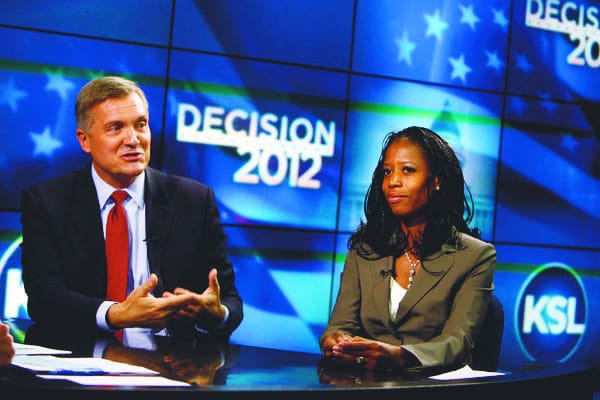Utah's 4th Congressional District Depends on Independents

credit: Laura Seitz, Deseret News

The race for Utah's 4th Congressional District features the Beehive State's only incumbent Democrat, Jim Matheson, and Republican mayor from Saratoga Springs, Mia Love.
Matheson, who has represented Utah’s 2nd district for twelve years, is facing unfamiliar voters following the 2010 Census’ redistricting efforts. He is also the chair for the Blue Dog Coalition’s task force on energy. The newly created 4th district is still largely Republican, as was the 2nd, but Matheson has played up his more conservative platform to appeal to independents and Republicans alike. Polls prior to the Republican National Convention had Matheson leading by anywhere from three to eighteen points.
Surprisingly, Love has jumped ahead of Matheson in recent polls. The latest poll, conducted by Public Opinion Strategies, was released by Love’s campaign and shows the Republican candidate ahead 51-36, which is almost a complete reversal from July when Matheson was ahead 51-33. The Matheson campaign has since contested the legitimacy of the poll, telling the Salt Lake Tribune:
"It’s a totally biased internal poll and given the bad week and bad day our opponent had it seems like an attempt to get control of her flailing campaign," - Matheson spokeswoman Alyson Heyrend.
Provided the poll is accurate, Love's surge since her appearance at the convention helped her raise over $200,000, giving her tremendous momentum heading into October. Love's heartwarming back story, regarding her parents' immigration from poverty-stricken Haiti, was stated as her reason for embracing conservative values. This is epitomized in her support of the Ryan budget. However, this story has also raised the question of whether or not her parents' path to citizenship was altogether legal.
Utah's active unaffiliated voters rival Republicans nearly 1:1 statewide according to the Lieutenant Governor of Elections. This means roughly 50% of Utah’s electorate is independent; one of the highest percentages in the nation. Although Utah is nearly as red as it gets, with 62% voting for McCain in 2008, Matheson has been able to get enough independent votes to remain in congress for over a decade. He has often characterized his opponents as too right wing and cast himself as a moderate who is not afraid to vote against his party. In a debate with Love, Matheson remarked, “You can’t follow one party or the other all the time.”
Love's endorsement of the Ryan budget and aspects of Matheson's voting record present hurdles for both candidates in terms of reaching independently-minded voters. Nevertheless, the race hinges on each candidate's ability to convince Utah's wealth of unaffiliated voters that he or she will represent their interests effectively in Washington, DC.


